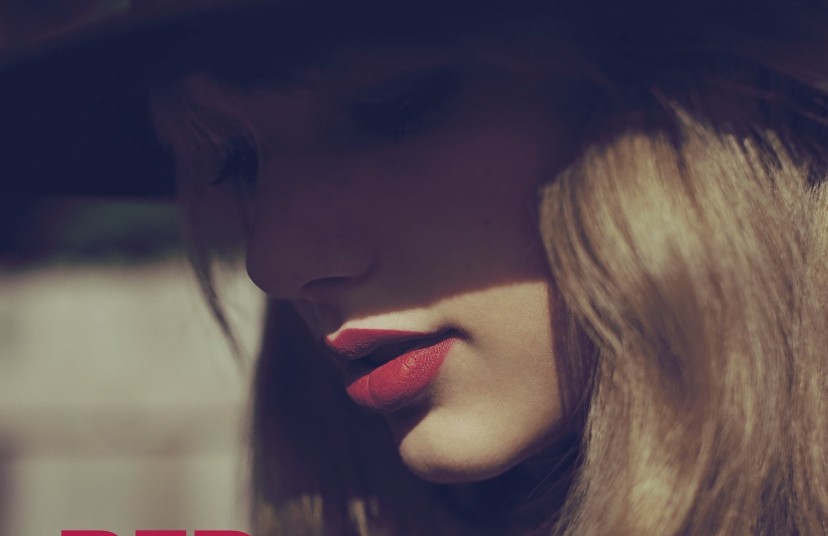
There aren’t many perfect albums and Red isn’t one of them. It’s overlong (all Taylor Swift albums are) at a whopping sixteen tracks (and SEVEN singles) but with a little bit of techno wizardry (or a Spotify playlist) we can refine an album so pure in its intent and vision, and already equally care worn by relationship woes, into something approaching faultless. So, what we get is not only a glimpse at an exceptional young talent transitioning from all-American starlet to global pop sensation, but also a snapshot of a life almost predestined and a masterpiece of songwriting in that sweet spot between pop and country. From the opening, ‘State of Grace’, with its punchy guitar optimism and forgiving sadness, Red is a charmingly personal statement from the great American songbook…
Often subtle and understated, a craft Swift would later fully master, the title track and another early highlight, ‘Treacherous’, creep into your musical memory slowly where more traditional instrumentation and arrangements are still used to good effect, like much of 2020’s Folklore which revisited a wise-beyond-her-years country inflected melancholy that Red is arguably built on. However, what the more recent surprise releases, Folklore and Evermore, lack in big choruses and codas, Red has plenty of too. The outro to ‘Treacherous’ is the first indicator as it veers wilfully and confidently into mid-era Stevie Nicks territory while the quietly seething ‘All Too Well’ and ‘I Almost Do’, overlap a mega-pop of sandwich of ‘22’ and ‘We Are Never Ever Getting Back Together’, the latter with its era-defining spoken word segment about One Direction’s Harry Styles (Swift’s production oeuvre was also really starting to ramp up). Both of which start to mark this album out as one of the most relationshippy records, like ever and the other side to the Red coin. In fact, Swift herself described the album as a break-up record but has never publicly disclosed the subject person.
Upping the ante significantly from everything that came before from the artist, the way the “oh-oh” announces the huge chorus in ‘22’ (a high watermark in 2010s North American pop music) remains mind-blowingly good from a singer still so young while, ‘I Knew You Were Trouble’, another about Styles, was arguably never bettered by Swift even on gadzillion selling 1989 two years later. Sections of the tabloid media may have speculated that, apart from the internet exploding in some kind of binary celebrity supernova, if Swift had married Styles, what a songwriting force they could have been, a latter-day Buckingham and Nicks, however, in reality it would likely have sucked all the creative energy out of Swift’s Styles inflated sails, like the wholly more diametric Ike & Tina Turner.
However, while Red is an album with Styles’ personal influence throughout, it could equally have been spawned by any of Swift’s romantic or professional dalliances of this creative period (cf. Ed Sheeran and previous songwriting foil Nathan Chapman) such was her ferocity to be the best in her field, and it’s this creative drive that was first really obvious on Red and a giant leap in quality control compared to the three studio albums released previously. Let’s not forget Swift was already an established star in the conservative but hugely lucrative middle-America country music market.
What Red has though is that its best songs are interwoven amongst its even better songs, of which those were presumably only arbitrarily chosen by the record label as singles anyway, so the only real difference being in pace rather than quality in a subtle amalgamation or obliteration of styles depending on your preference. And, this is no better summed up by the often forgotten, ‘Stay Stay Stay’, which bridges these two overt practices of country and pop as a centrepiece of sorts at track nine and surprisingly overlooked as a single… And the first nine tracks of Red really are virtually perfect.
Further in, even the preternaturally shit power ballad, ‘The Last Time’ (you know, the Gary Lightbody one), has a chintzy quality about it that transcends a choice of duet that has not aged well; and the absolute rip of Mazzy Star’s ‘Fade Into You’ on ‘Sad Beautiful Tragic’ which is a shame because the latter in particular, given a more mature reworking, as I am sure Swift would agree given her current penchant for re-recording, would not have sounded out of place on Folklore either. At this stage it’s easy to start dismissing the last third of Red as forgettable malaise but even the Ed Sheeran one, and another single, ‘Everything Has Changed’, is a welcome late high-point in an era when big pop albums were expected to frontload their singles and a telling insight into Swift’s fierce artistic independence and natural inclination to buck the trend.
So, there are at least twelve tracks on Red for everyone. It might be the first twelve because you might think you don’t remember track fifteen until I tell you it is called ‘Starlight’ while closer ‘Begin Again’ is the most traditionally country offering almost as a knowing nod to a previous life. Because what Red really is, even more than 1989, is a musical signpost at the bottom of the steep upward curve of Swift’s career…
